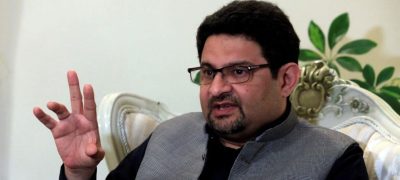Pakistan is poised to become the fourth-largest debtor to the International Monetary Fund (IMF) as it receives an additional $3 billion in loans over the next nine months. Based on IMF data as of March 31, 2023, Pakistan was previously ranked fifth in terms of borrowing from the IMF. However, with the recent standby arrangement, the country will move up to the fourth position on the list.
Read More: Reduced GST on Card Payments at Restaurants: A Step Towards Customer Convenience
At that time, Argentina held the top spot with $46 billion in loans, followed by Egypt with $18 billion, Ukraine with $12.2 billion, Ecuador with $8.2 billion, and Pakistan with $7.4 billion. With the new loans, Pakistan’s borrowing will increase to $10.4 billion, surpassing Ecuador to become the world’s fourth-largest IMF borrower.
According to IMF statistics, as of March 31, 2023, the global lender had provided loans totaling $155 billion (or 115.2 billion special drawing rights) to support weak economies and stabilize the world’s financial position. This amount was calculated using the value of a special drawing right, which stood at $1.345 on March 31.
While the IMF has a total of 93 member countries in debt to it, the top 10 debtors, including Pakistan, account for the majority of the outstanding balance at 71.7%.
It is worth noting that Pakistan also holds the distinction of being the largest borrower from the IMF in the Asian region. Compared to other Asian countries that have borrowed from the IMF, such as Sri Lanka, Nepal, Uzbekistan, the Kyrgyz Republic, Armenia, and Mongolia, Pakistan’s borrowing far exceeds theirs.
Pakistan’s current balance of payments crisis, compounded by spillovers from the conflict in Ukraine and domestic challenges, has necessitated its increased reliance on IMF loans. With only 19 of the IMF’s member countries having a debt of $1 billion or more, Pakistan’s high ranking among borrowers highlights the need for sustainable development strategies to help the country escape the debt trap.
Moving forward, it is crucial for Pakistan to formulate an integrated plan aimed at achieving sustainable development and reducing reliance on IMF loans. This approach will be instrumental in steering the country towards economic stability and prosperity.









